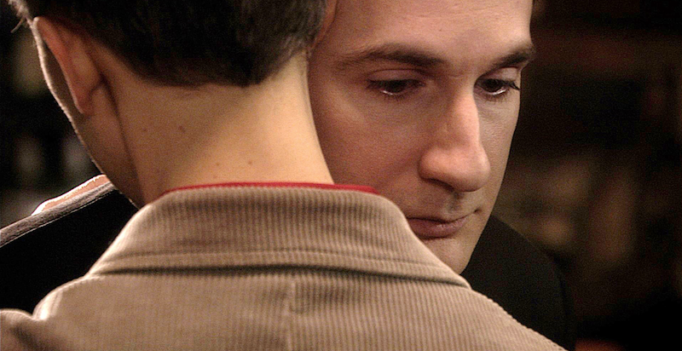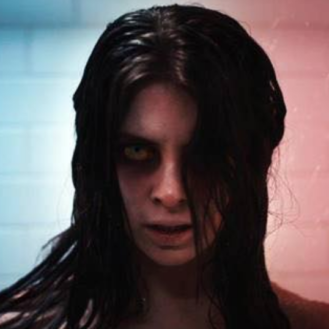The David Dance is a stage-to-film adaptation from actor/screenwriter Don Scimé. I haven’t seen his original stage play, but I can figure out a couple of things from the movie: Scimé is a passionate artist who cares very deeply about the themes acknowledged in his work, but not enough compromises have been made by director Aprill Winney to make his original material fill feature film britches.
The David Dance is very theatrical. Actors recite pages and pages of dialogue and monologues, the staging replicates the same kind of choreography, and scene transitions are treated similarly to how crossfading works on a lighting grid. However, Aprill Winney assumes that both theatre and film are that of the same – they’re not. Both mediums have forgivable aspects to them, and work in their own right. For instance, details in theatre can afford to be more embellished because of the actor’s reach towards their nearby audience, whereas films can afford to dial it down because it’s a more intimate experience where the viewer is looking in.
Rules have been broken before. Lars Von Trier, for instance, made Dogville on a minimalist stage where performers mimed the environment around them. That unnatural decision was easy to overlook since the cast of amazing performers were able to distract us from this glaring eccentricity. The David Dance doesn’t have the aptitude in its production to distract us from anything. The film is shy of two hours, and the audience notices every stilted bit about it.
Like I stated earlier, I’m unqualified to comment on the carry-over of Scimé’s ideas. With Scimé being so involved with the making of the film, I can only assume he approves on everything. But maybe, just maybe, Don Scimé should’ve directed the film as well instead of investing so much trust into Aprill Winney, a director who seems to understand the logistics of indie filmmaking but lacks the proper skill to communicate the insecurities of Scimé’s timid radio deejay through a choppy narrative. Different elements could’ve carried more resonance as well, such as Ian McGlocklin’s cinematography. McGlocklin sets a sombre atmosphere for The David Dance, but his work is squandered as Winney’s disinterest allows it to ineffectually waft through frames.
In other words, watching The David Dance is like witnessing a game of “broken telephone” where the screenwriter’s passion is gradually diluted until its one-tenth of what it originally was.
**********
Do You Tweet? Follow These Tweeple:
Addison Wylie: @AddisonWylie





Be the first to comment